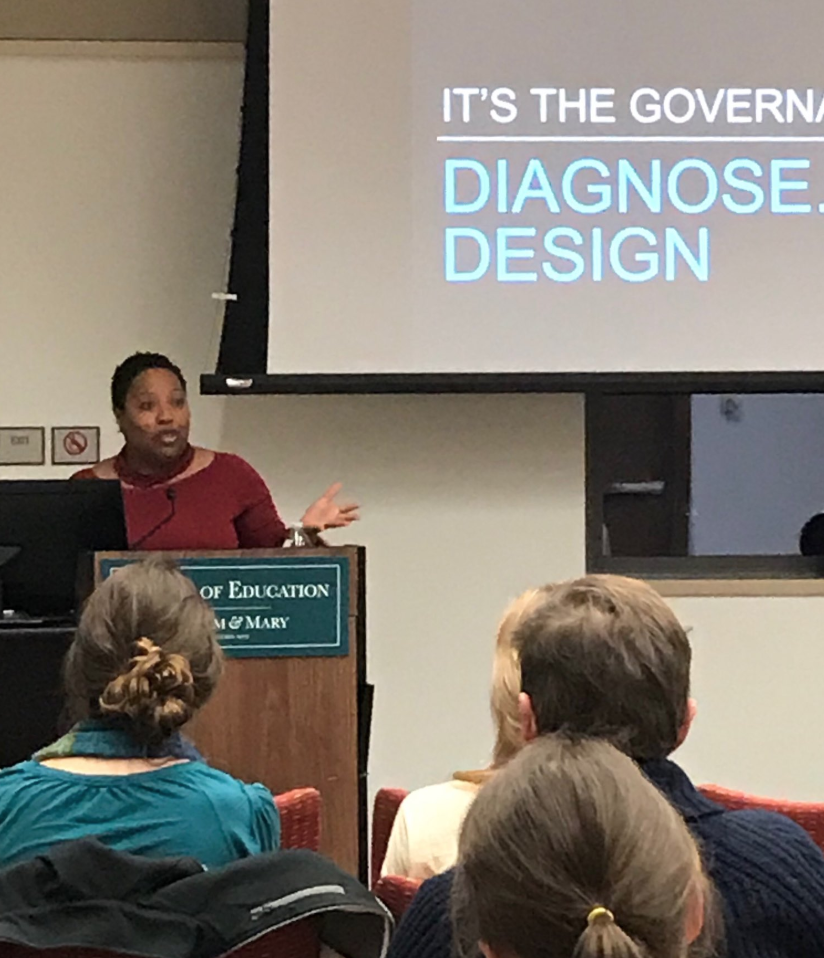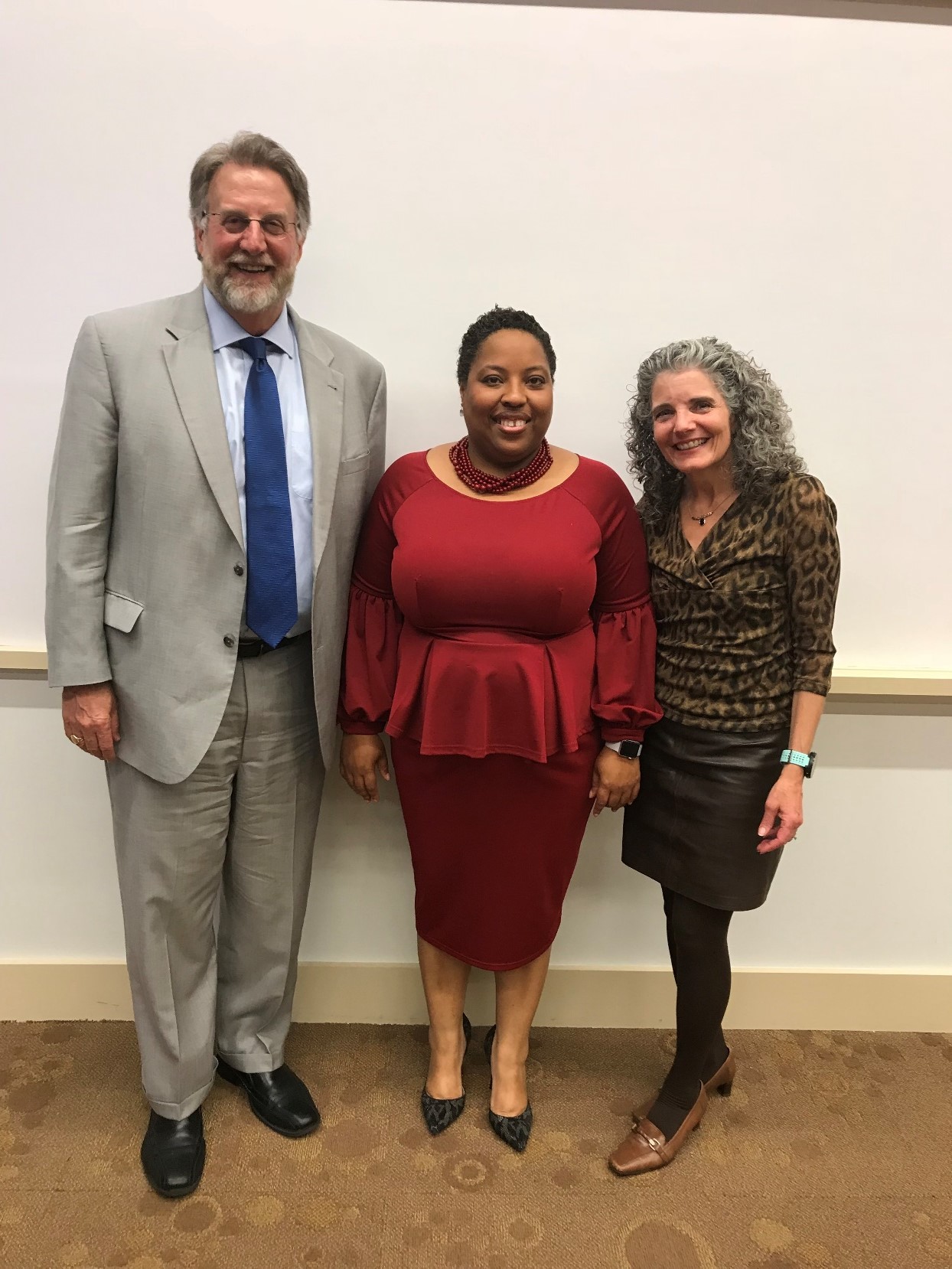Fall 2018 Higher Ed Salon
Diagnose. Disrupt. Design: It’s the Governance, Stupid
Lacrecia Cade, JD ‘02, provided a thought-provoking presentation on the topic of shared governance for the fall Higher Education Salon on October 23rd. The Salon was recognized as part of the year-long celebration of 100 years of women on campus. Ms. Cade is an attorney and strategist currently serving as the head of the Legal, Internal Operations team of Aflac, Inc., in Columbus, Georgia. Prior to joining Aflac, Ms. Cade served as the General Counsel and Chief of Staff of Morehouse College during a time of unprecedented growth and change. In addition to serving as an executive and lawyer, Ms. Cade is a speaker and author. She uses these platforms to discuss how to overcome organizational dysfunction and shares lessons learned during her career that has been full of healthy disruption. According to Pamela Eddy, “What was so exciting about the Higher Ed Salon on governance was how quickly Lacrecia Cade disrupted traditional notions of governance as something others did or as a process that doesn’t work. I left the session thinking about how we all need to be courageous leaders and how important relationship building is to executing strategy.”

Cade grounded her framework with the first step of diagnosing problems. Here, she pointed out how initiatives get derailed due to a lack of common understanding and language to describe what exactly the problem is that the university/department/program faces. Second, Cade advocated that disruption was required to push for needed changes. At the core of this disruptive behavior are courageous leaders who listen, build consensus via engagement, make decisions, and execute on strategy. Finally, designing solutions built on sharing governance requires shared accountability, which builds a culture in which everyone involved understands their role and responsibility. Michalos commented, “As ambassadors of shared governance, Ms. Cade charges us all to talk about the importance of sharing governance and engaging in community-wide opportunities. Although engaging in shared governance can begin small, it can ultimately lead to success by engaging different stakeholders who bring with them different perspectives on how to approach any situation.” Cade was clear that historic modes of academic decision-making are slow and argued instead for the need for a time clock to allow for feedback and a clear point at which the decision is made.Ms. Cade’s experiences provided a robust backdrop of examples as she argued the need for leaders and stakeholders to share governance. She argued that the challenges of balancing the interests of constituencies in academia require a focus on alignment of priorities. Wilson Lam, a first-year master’s student, commented, “Ms. Cade's real-world experiences were relatable to the materials we are synthesizing for class pertaining to the sharing of governance within an organization.” Current students were able to see direct application of how the theories they are learning apply in practice. Alexis Michalos, first-year master’s student, noted a clear example from the lecture was “the idea that sharing governance is not about pleasing everyone.”
The ensuing conversation centered on the ways in which the current Thinking Forward initiative of President Katherine Rowe builds on the concept of shared governance. Ms. Cade provided advice to new professionals on relationship building strategies, the tools needed for successful leadership at all levels, and the need for a culture of engagement. The power of the presentation was reflected in Lam’s reflection of the evening as he added, “Ms. Cade's perspectives provided a great framework for graduate students to use and become change agents for leading the future of educational institutions.”
